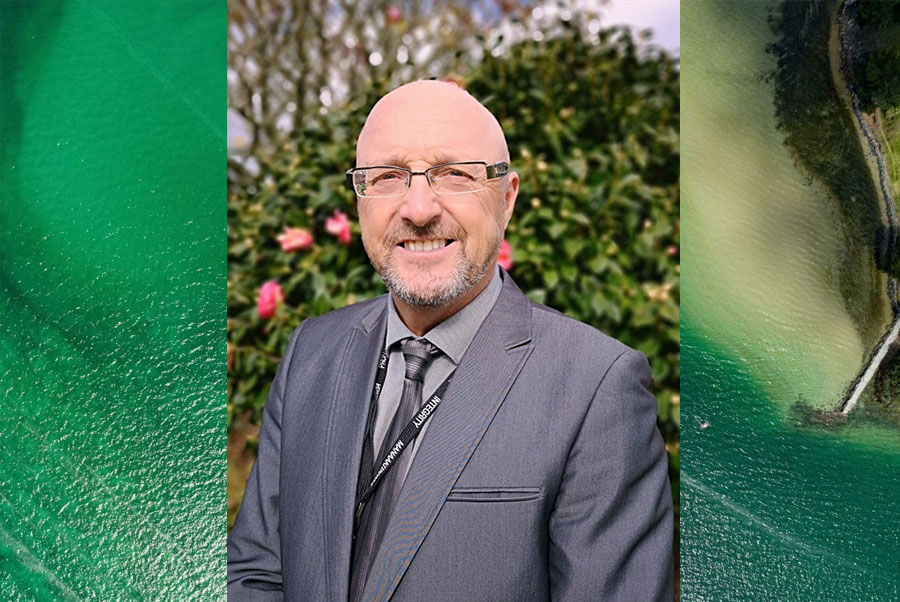In my experience, people working in public service tend to have a sense of humility that you perhaps wouldn’t find elsewhere. Self-serving and boastful Gordon Gecko, ‘greed is good’ types, really aren’t attracted to local government. If anything, the pendulum has swung too far the other way – I find that many Council managers tend to hide their light under a bushel a little too often. One example of this is a reluctance to use the word ‘ambition’. This is not a dirty word; rather ambition should be viewed as a positive attribute allowing people to fulfill their potential.
Outlined below are my top 10 tips in charting a career path to reaching the pinnacle in local government.
- Integrity and Equality – To be considered for the top job in local government you need to be imbued with the highest levels of integrity, along with a real zeal to progress the EEO. Integrity is simply and consistently, doing what you say you will do, that is keeping your word and demanding the same ‘gold standard’ from all others in the organization. Similar high standards are demanded when it comes to promoting the Council’s total commitment to advancing its range of ‘Equalities’ policies.
- Get Qualified – Academic (and/or) professional qualifications are a must. I personally believe that an MBA is worth the effort as it demonstrates commitment to progress and learning. If you can get your current employer to sponsor you all the better, but if not, consider investing in yourself. If you are ambitious such an investment of time and money is well worth it.It’s worth adding that those who succeed never stop learning. So be committed to a life-long journey of continuous professional (and personal) development.
- Learn From the Best – Work for a star. When setting out on your career, try and find out about those managers who have a truly great reputation and if possible try and get a job working for them. They will provide examples of both the inspiration and perspiration that it takes to be successful. You can use them as a role model, while at the same time developing your own style and personal approach.One attribute you will notice about great leaders, is the emphasis they put on being a team player. A big part of the CEO’s job is to nurture and support staff at all levels of the organisation.You might also consider finding a mentor (something which Blackadder Associates does particularly well). A mentor can be a great sounding board, will give you honest feedback and provide a ‘safe space’ to discuss your hopes, dreams and aspirations.
- Become Visible – Inside the organisation you can get noticed by volunteering to work on a corporate or cross departmental project, which takes you outside of your current service area. This ‘above and beyond’ type of effort not only provides you with additional experience, but can also mark you out as a future rising star.Boosting your visibility outside the organisation is important too. Build a network of contacts – do favours for people, make friends, attend industry conferences and exhibitions, be approachable, be helpful. This can also be extended to industry recruitment agencies; (Stephen Blackadder is always happy to have an ‘in confidence’ coffee and chat with anyone seeking career advice).
- Communicate Like a Pro – I can’t emphasise this one enough. Great leaders have excellent communication skills. We all know that great communicators are born not made….wrong, so very wrong! As the old saying goes, practice makes perfect.Look at the different types of writing tasks you will be required to undertake – from a formal report for Council, to a snappy and informative press release. Look at examples of what you consider as ‘excellence’ and identify what makes them so effective – then incorporate these ideas within your own writing style. If I could offer one piece of advice it would be this, seek to construct complex arguments by combining simple ideas that follow logically. Ideally this should come across as the veritable ‘simple story well told’.One of the attributes of many great leaders is their ability to speak to audiences of any size. Again, like the writing aspect highlighted above, this is down to practice. One suggestion I have for improving is to commit to watch one TED Talk a day (if you don’t know about TED you should do…get googling). TED features some of the world’s best speakers and brightest minds, they all have different styles of delivery; find some that you really admire and practice the aspects of their delivery which stand out. Try practicing in front of a mirror – good for boosting confidence.One personal tip – when under pressure, we all sometimes add ums, uhs, ya knows and likes and hesitant inflections into our sentences, put simply, this is because we’re not fully present mentally. It’s good, in such moments, to take a deep breath, calm down, and then speak with authority.
- Learn From Others – No need to re-invent the wheel, find out what others are up to in corporate leadership. Which Councils have a reputation for excellence and innovation, what is it that they do differently from others and what role does their CEO have in their transformation from good to excellent? Open your mind and be receptive to different ways of operating.
- Know What You are Aiming for – Revisit annually what you see as your personal goals, via a career and life health check. Reflect on these and ensure that you are still comfortable with the track that you are on, and if you not, then readjust. This is something which you might wish to undertake with your mentor. An opportune moment for this is immediately after your annual performance appraisal with your line manager.
- Understanding the Political Dimension – To be an effective Council CEO/GM you must first and foremost have the utmost respect for the democratic process. Elected representatives are, after all, vox populai (the voice of the people). Watch how your current CEO and other managers interact with the Mayor and Councillors. There should be an air of professionalism and mutual respect.One of the most significant tasks of any CEO is to be the primary interface between Councillors and staff. This requires many skills – diplomacy, professionalism and communication among them. Occasionally too, it also requires ‘fearless advice’ – for example having the courage to give the Council a message that it doesn’t want to, but really needs to hear.
- PMA – Having a Positive Mental Attitude is one of the hallmarks of leadership. This doesn’t mean grinning like an idiot 24/7, or being a fully paid up member of the Happy Smile Club, it’s more about ensuring that cynicism and naysaying are not part of the way we do things around here. Boundless energy, enthusiasm and a smile is the way to go.
- Applying for a Top Job – Undertake any job application in a professional manner. If it says call for more information or an informal discussion, then grasp that opportunity. Tell the recruiter about yourself and your track-record and then ask if this seems like a good ‘fit’ with what they are looking for.Regarding the application, address the requirements of the post point by point. Highlight your achievements to date rather than merely regurgitating your current job description. Recognise the context of your achievements – who and what has contributed to this success. Job titles are one thing, but what did you actually do? How did your actions make a tangible difference, and how did you add value?Think about your writing style, paint a picture of yourself for the recruiter which portrays your attributes so positively that they will have to shortlist you. Prior to interview prepare and research everything you can about the Council and what will be expected from the CEO.If you’re application is unsuccessful, don’t be dismayed…it’s very competitive. It is quite rightly a question of finding the right fit for the right job. Always take-up the offer of feedback, getting an insight as to how others see you is invaluable.
And Finally
In a few bullet points, here are the things that have helped me to succeed as a Council CEO:
- Being unafraid to make changes and refreshing things when they need it; but at the same time avoiding ‘change for changes sake’.
- Challenging ingrained and dyed in the wool organisational cultures where this no longer assists the Council to meet its objectives.
- Listening hard to Councillors, the community, partner agencies and staff at all levels, and ensuring that all managers do likewise.
- Making sure that we recruit only the very best people, those with high energy levels and the tenacity needed to improve the organisation and being unafraid to take tough decisions where people don’t do this.
- Never forgetting that as a Council CEO you are dealing with a dynamic and fluid situation, you need plenty of common sense and good judgement for the (often unpredictable) issues which will jump up and bite you.
William J Taylor MBE
Will Taylor is a former Chief Executive of two UK Councils and has worked previously with Blackadder Associates serving both private and public sector clients across Australia. He now works globally as an independent consultant.




